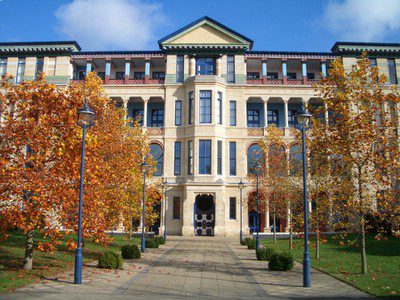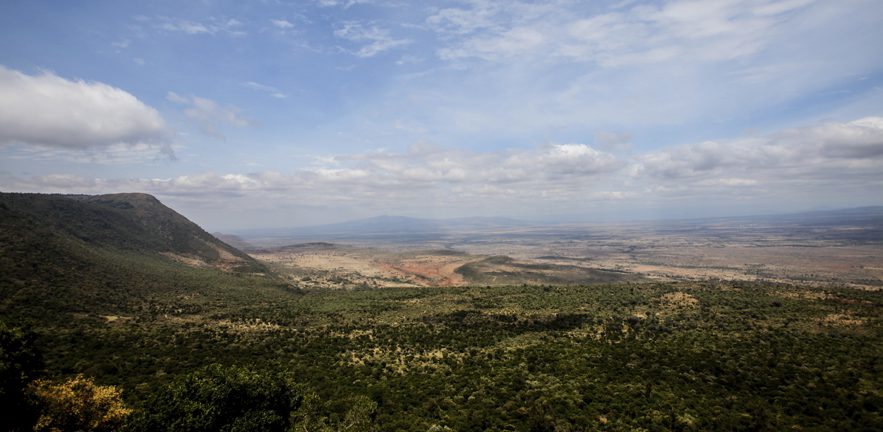Cambridge Judge Professor Talks Competition in Business

In business, it’s always about being the best. You have to look out for number one. That’s your only priority. As long as you’re beating your competition, you’re set. Well, that’s not exactly true according to Professor Shahzad Ansari, a Professor of Strategy & Innovation at University of Cambridge’s Judge Business School. In a recent news article, he presented a different idea. “You don’t need to blow out someone else’s light to make yours shine,” said Ansari. “Going in too aggressively harms your own reputation and can wreck your business.” Continue reading…
Cambridge Judge Professor Visits and Speaks in Mumbai

Plenty of blame was cast for the financial crisis of 2007-2008, but finance education and training has hardly been blameless – this is the argument of Simon Taylor, University Lecturer in Finance at Cambridge Judge Business School.
A “standard set of finance concepts and tools” have been used to train people in the finance industry for decades, but many of those are based on very shaky foundations, Taylor told an audience in Mumbai on 28 January.
“We have to make students aware of what is known, but also how limited, fragmented and tentative that knowledge is,” Taylor says, urging that several elements should become standard fixtures in the education of financiers and others entering the investment industry.
Continue reading…
Judge Business School Research Shows How Shame Can Promote Productivity

Shame, according to the famous Swiss psychiatrist Carl Jung, is a “soul-eating emotion” – and because some mistakes at work are inevitable, such soul-destroying shame is a common workplace occurrence.
Yet newly-published research co-authored by Andreas Richter, University Lecturer in Organisational Behaviour at Cambridge Judge Business School, concludes that managers and fellow employees can help channel workplace shame into creativity if the situation is handled skilfully and sensitively.
“People naturally want to overcome their workplace shame by demonstrating their value to the organisation, and one way of doing this is to show creativity,” says Richter. “The study finds that managers can facilitate this by providing an appropriate environment.”
Continue reading…
Judge Business School Presents Energy Market Evolution Talk On January 29

Michael Pollitt, Professor of Business Economics at Cambridge Judge Business School, will host a conversation on the state of the energy market and how it has evolved over the last few years. Taking into account competitive market theory, Michael will consider the relationship between retail and wholesale markets, the likely consequences of a price freeze and what this all means for the individual consumer as well as for business.
Continue reading…
Cambridge Judge Announced 15-Member China Advisory Council

Cambridge Judge Business School announced a new 15-member China Advisory Council in advance of December’s Sanya Forum, a gathering of about 1,000 influential political, business and academic leaders in Sanya, Hainan, China.
The 15-member China Advisory Council (CAC), which was launched at an event hosted by Cambridge Judge at the Sanya Forum on December 14th, is being established to advise the School on its future engagement in China – a very important area to Cambridge Judge in terms of students, faculty, executive education and academic focus. The new panel includes top executives of leading Chinese firms such as banks and media enterprises, as well as academic, spiritual and business leaders from China and the UK.
Continue reading…
Cambridge MBAs Expand Their Horizons in Developing Regions

Students from many countries study for an MBA abroad in order to diversify their careers after working for a number of years in their home countries. Two students from China chose a different path, however, by working in more challenging markets – Kenya and Iran – before pursuing MBA studies at Cambridge Judge Business School.
Ru Hao, who previously studied in Beijing and the Belgian city of Leuven, worked in agricultural development in Kenya. Zhao Liu, previously a student in Beijing and Wuhan, worked at Chinese-state-owned energy company SINOPEC in Iran. Read this Q&A with them to learn why they chose their respective paths.
Continue reading…
